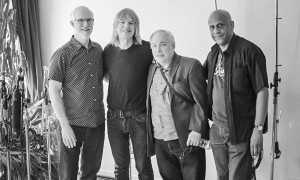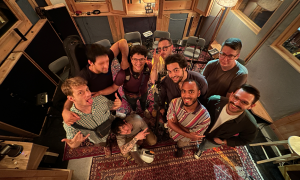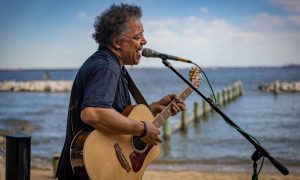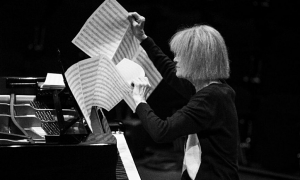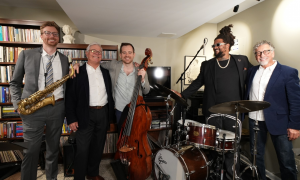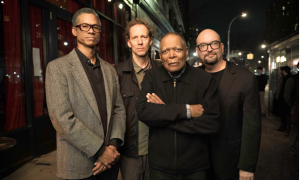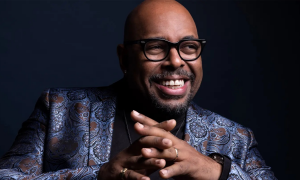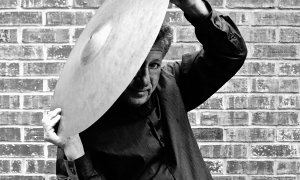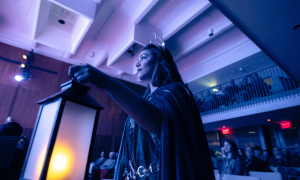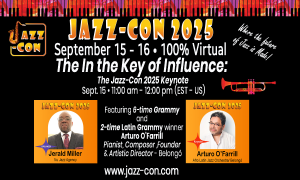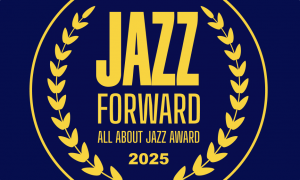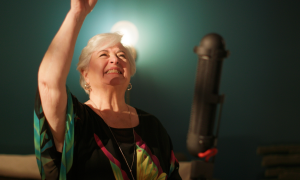Urra has refused to accept boundaries—whether in repertoire, audience, or ambition. He doesn’t hold a torch for tradition; he lights new fires, daring the institutions at the heart of Boston’s (and the continent’s) music scene to imagine more audaciously. His leadership is always hands-on, sometimes disruptive, but invariably catalytic—making organizations not just better, but fundamentally different.
Step inside Wally’s Café Jazz Club on a brisk Friday night and you’ll feel the pulse—an electric current rewriting Boston’s musical DNA, one bold violin line at a time. It was 2023, and audience members squeezed through the famous red door for a taste of something new and vital: Chilean crossover jazz, surging from beneath Brian Urra’s restless bow.
Urra didn’t just play—he ignited. Under his residency, the club’s legendary jam session tradition tangled with South American fire. Jazz lifers and wide-eyed undergrads found themselves next to international students and Latin American expats, all following a rhythm that shifted the coordinates of the city’s jazz map. By the time Urra’s quartet hit a groove, Wally’s wasn’t just honoring history—it was making it. The club’s “Wally’s sound” evolved right before listeners’ eyes: more global, more electric, and definitely less expected.
Thanks to Urra’s vision, Park Street was more than a stop for the faithful—it was a crossroads for the curious. Visiting musicians, college choirs, and newcomers ended up in the pews, drawn by the creative energy unleashed under his baton. For Park Street, music was no longer a background—through Urra, it became a magnet for unity and a catalyst for community engagement.
Urra’s mark wasn’t just audible; it was organizational. He shaped the group’s musical direction, challenged how sets were built, and inspired musicians to embrace daring improvisation on stages known for their perfectionism. Under his leadership, Speechless didn’t merely keep up with the city’s relentless pace; it set a new one, with audiences—including Taylor Swift, NBA champions, and tech moguls—dancing to his cues.
Urra’s mission? To blur lines, challenge assumptions, and help students find their unique creative voices. He’ll craft a curriculum that fuses jazz improvisation, Latin heritage, and classical technique, pushing learners beyond rote performance toward true artistic self-discovery. His role isn’t just to instruct, but to inspire a new wave of musical boundary-breakers.
Across town, the North End Music & Performing Arts Center has tapped Urra’s rare dual mastery for its highest teaching post—Lead Music Pedagogue for both piano and violin from 2025 through 2028. This is the heartbeat of Boston’s historic North End, where nearly 1,400 students each week cram into old brick classrooms within sight of Paul Revere’s lanterns. With Urra, NEMPAC isn’t just adding talent. They’re introducing a paradigm shift: one in which cross-disciplinary creativity isn’t just allowed, it’s expected. Faculty and curriculum are poised to adapt, ready for innovations and collaborative projects that reflect the way Urra himself dances between genres and techniques.
Ask anyone who’s worked with him: Urra isn’t merely a violinist or even a composer. He’s an instigator, a connector, an experimenter-in-residence who pushes his organizations, colleagues, and students into the exhilarating unknown. For Wally’s, for Park Street, for Speechless, BMP, and NEMPAC, that’s the legacy: Not merely a new sound, but a new way to listen, to gather, and to dream.
Brian Urra’s story is a promise to Boston—and to music scenes everywhere—that institutions don’t have to repeat history. In the right leader’s hands, they can write it anew, one breathtaking performance, one reimagined curriculum, one community at a time.
Urra didn’t just play—he ignited. Under his residency, the club’s legendary jam session tradition tangled with South American fire. Jazz lifers and wide-eyed undergrads found themselves next to international students and Latin American expats, all following a rhythm that shifted the coordinates of the city’s jazz map. By the time Urra’s quartet hit a groove, Wally’s wasn’t just honoring history—it was making it. The club’s “Wally’s sound” evolved right before listeners’ eyes: more global, more electric, and definitely less expected.
From Rebel Sound to Sacred Ground
This isn’t the story of a musician slotting himself into hallowed traditions. Even Boston’s Park Street Church—a beacon for spiritual and musical history—felt his willingness to rethink everything. For generations, the church’s towering steeple presided over a music ministry steeped in tradition. Yet, when Urra arrived as Lead Violinist and a driving force from 2018 through 2025, he didn’t just preserve the status quo. Rehearsals became living laboratories where Baroque reverence collided with improvisational verve. Sunday mornings and special concerts transformed as the orchestra and string quartet ventured into repertoire that echoed both faith and the pulse of the city outside.Thanks to Urra’s vision, Park Street was more than a stop for the faithful—it was a crossroads for the curious. Visiting musicians, college choirs, and newcomers ended up in the pews, drawn by the creative energy unleashed under his baton. For Park Street, music was no longer a background—through Urra, it became a magnet for unity and a catalyst for community engagement.
Where the Band Becomes the Headliner
Meanwhile, Urra took on a wholly different challenge as Lead Violinist at Speechless Music, the multi-award-winning entertainment collective trusted by celebrities and Fortune 500s. To many, event bands are background noise. But Urra never played background. He fused the complex dialogues of Latin and classical traditions into pop, funk, and jazz arrangements that made audiences stop and listen. The result? A hotly demanded, genre-blurring sound now synonymous with high-profile Boston soirées and international clients alike.Urra’s mark wasn’t just audible; it was organizational. He shaped the group’s musical direction, challenged how sets were built, and inspired musicians to embrace daring improvisation on stages known for their perfectionism. Under his leadership, Speechless didn’t merely keep up with the city’s relentless pace; it set a new one, with audiences—including Taylor Swift, NBA champions, and tech moguls—dancing to his cues.
Building the Next Generation, One Imagination at a Time
But Urra’s audacity isn’t limited to nightclubs and glitzy venues. If anything, his most radical experiment might begin in 2025—when he steps into two of the city’s most innovative educational centers. First, at the Boston Music Project (BMP), Urra is set to direct the Villa Lobos Orchestra and serve as Lead Teaching Artist for over 2,300 diverse young musicians. This isn’t your average after-school music program—the internationally famous BMP has hosted global icons like Ed Sheeran and consistently breaks new ground for access and artistic excellence.Urra’s mission? To blur lines, challenge assumptions, and help students find their unique creative voices. He’ll craft a curriculum that fuses jazz improvisation, Latin heritage, and classical technique, pushing learners beyond rote performance toward true artistic self-discovery. His role isn’t just to instruct, but to inspire a new wave of musical boundary-breakers.
Across town, the North End Music & Performing Arts Center has tapped Urra’s rare dual mastery for its highest teaching post—Lead Music Pedagogue for both piano and violin from 2025 through 2028. This is the heartbeat of Boston’s historic North End, where nearly 1,400 students each week cram into old brick classrooms within sight of Paul Revere’s lanterns. With Urra, NEMPAC isn’t just adding talent. They’re introducing a paradigm shift: one in which cross-disciplinary creativity isn’t just allowed, it’s expected. Faculty and curriculum are poised to adapt, ready for innovations and collaborative projects that reflect the way Urra himself dances between genres and techniques.
Redefining What Organizational Leadership Means
Across every role, Urra has refused to accept boundaries—whether in repertoire, audience, or ambition. He doesn’t hold a torch for tradition; he lights new fires, daring the institutions at the heart of Boston’s (and the continent’s) music scene to imagine more audaciously. His leadership is always hands-on, sometimes disruptive, but invariably catalytic—making organizations not just better, but fundamentally different.Ask anyone who’s worked with him: Urra isn’t merely a violinist or even a composer. He’s an instigator, a connector, an experimenter-in-residence who pushes his organizations, colleagues, and students into the exhilarating unknown. For Wally’s, for Park Street, for Speechless, BMP, and NEMPAC, that’s the legacy: Not merely a new sound, but a new way to listen, to gather, and to dream.
Brian Urra’s story is a promise to Boston—and to music scenes everywhere—that institutions don’t have to repeat history. In the right leader’s hands, they can write it anew, one breathtaking performance, one reimagined curriculum, one community at a time.
Visit Website
For more information contact All About Jazz.

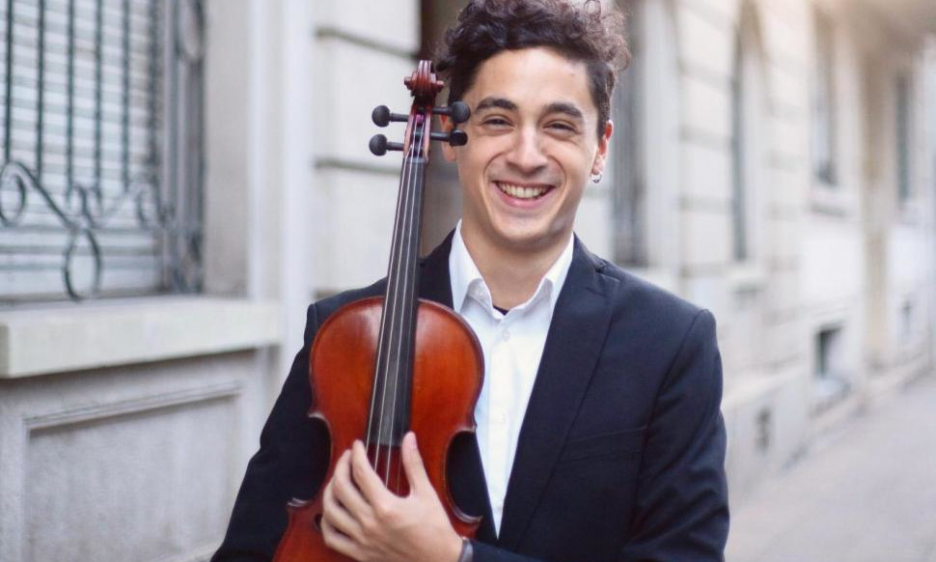
 Source:
Source:
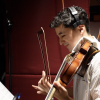




 Buy Now
Buy Now
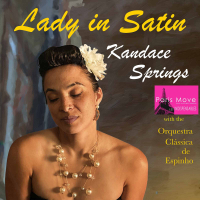
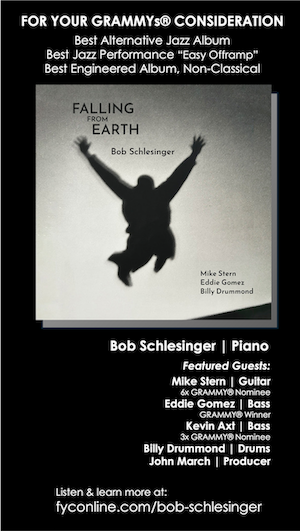 Bob Schlesinger: Falling From Earth
Bob Schlesinger: Falling From Earth



